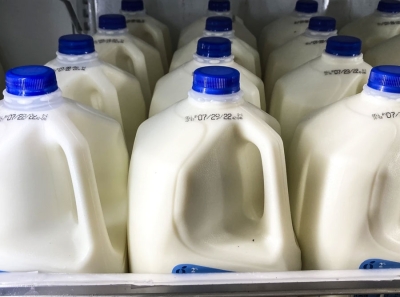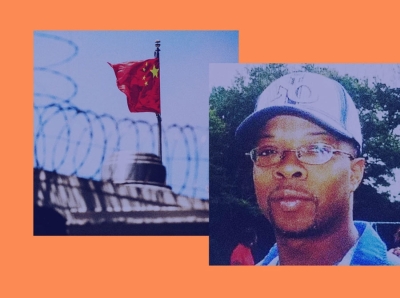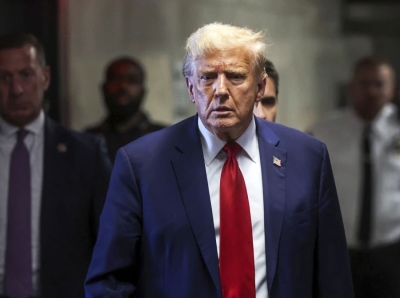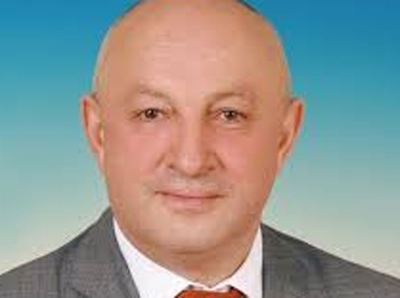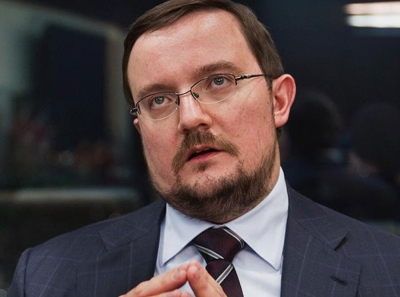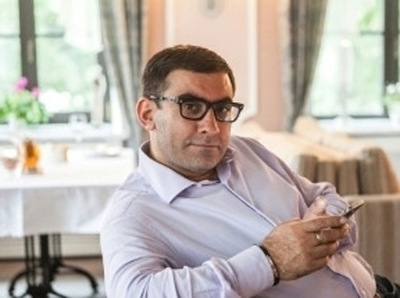What does the Yes to Kyiv mean for EU enlargement?
The EU Commission’s recommendation to start accession talks with Kyiv despite the ongoing war in Ukraine continues to occupy Europe’s press. The many reforms that Ukraine still has to complete before accession can go ahead are not seen as the only hurdle. The status of other accession candidates is also an issue.
More obstacles than in any other country
Ukraine has truly earned its prospective EU membership, economist Konstantin Sonin writes on Facebook:
“Ukrainians have aspired to EU membership since the first day of their newly won independence in 1991. They have always voted for politicians who promised to move towards EU accession. ... Ukrainians have more obstacles to overcome on their path to the EU than other countries. No current member of the EU has ever been attacked by a neighbouring country that wanted to prevent its accession. ... This makes the concrete steps towards European integration all the more important. It is these steps — and the right to take them — that are being defended on the front line.”
Disaster looms for the Kremlin
Postimees is also delighted:
“This is certainly no laughing matter for the Kremlin. In April 2022 a Russian general openly declared that control of southern Ukraine was essential to establish a land connection with Transnistria. The war that began on 24 February was therefore not only directed against Ukraine, but also against Moldova. A year and a half later, the Kremlin must admit that the very outcome that their war was supposed to prevent is becoming reality. ... The accession of Ukraine and Moldova to the EU would be a loss for Putin on the same scale as the loss of Crimea.”
A long and arduous path ahead
Deník N dampens excessive expectations:
“Ukraine and Moldova still have a long road ahead of them. Ukraine is at war, neither it nor Moldova fulfil the criteria for accession yet, and they must continue to work on legislative changes that will bring them closer to the EU. In the case of Ukraine, this includes laws to limit the power of oligarchs, to fight corruption and to protect the national minorities. Nevertheless, the EU’s outstretched hand is crucial for the country. It is a signal that the 27 EU states stand behind Ukraine, which is bravely resisting unprecedented aggression. The same applies to Moldova, a country Russia has been trying to bring into its sphere of influence for a long time now.”
Hungary as the stumbling block
Persuading Budapest to go along with Kyiv’s accession will not be easy, La Repubblica emphasises:
“Viktor Orbán’s Hungary has already announced that it is definitely not in favour. After all, the Hungarian prime minister has long been the Russian battering ram within the EU. ... So the first step is to negotiate with Budapest, which will no doubt demand something in return. ... Incidentally, it was the Commission’s report that gave Orbán a weapon in the first place. Among the areas where indispensable reforms have yet to be implemented are rampant corruption, the role of the oligarchs and the protection of minorities. And it just so happens that a Hungarian minority lives in Ukraine.”
Good reasons to link enlargement to reform
Poland would have a hard time giving up the unanimity principle, Rzeczpospolita comments:
“Germany, France and other countries are making EU reform a condition for enlargement. In particular, this involves restricting the right of veto in the foreign and financial policy decisions of the EU Council and strengthening the instruments that serve to defend the rule of law. The arguments in favour are hard to deny: a bloc of 35 states will count for nothing in the world if even its smallest member state (perhaps under the influence of foreign powers) can block strategic solutions. ... For Poland, however, this will be hard to accept. ... Will it manage to overcome its deep-seated fears in the name of the geopolitical revolution that Ukraine’s accession to the EU would entail?”
Everyone else would have to pay
Ukraine’s vast agricultural areas could lead to battles over distribution of resources, tagesschau.de fears:
“As an EU member, Ukraine would absorb virtually all the agricultural subsidies from Brussels — unless the financing and redistribution of funds in the European Union is fundamentally reorganised, that is. This is exactly what would have to be done to avoid an EU that has only net contributors with only one net recipient: Ukraine. This poses a huge challenge for a Europe, and the heads of state and government are already squabbling over the finances. And the question of rebuilding the country hasn’t even been mentioned.”


